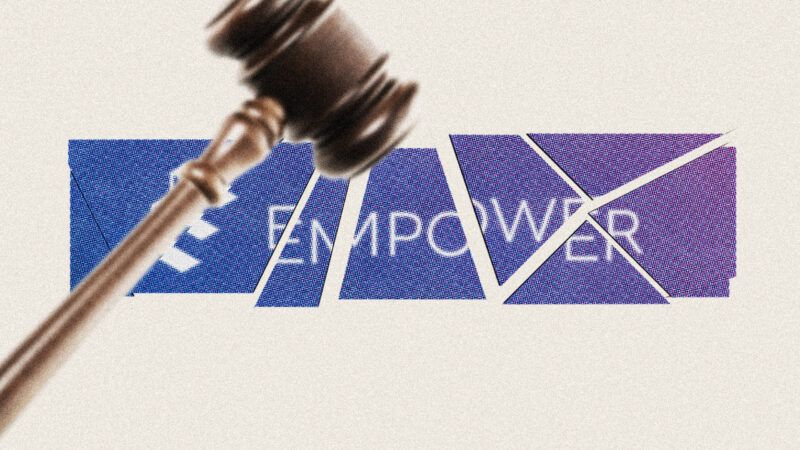Regulations Are Driving Up Ride-Sharing Prices in Washington, D.C.
City code protects incumbent transportation services by outlawing independent drivers.

Washington, D.C., was once one of the most ride-sharing-friendly cities in America. Nowadays, the city fines Empower—a peer-to-peer alternative to Uber and Lyft—tens of thousands of dollars per day for refusing to register with the Department of For-Hire Vehicles (DFHV) as a private for-hire vehicle company. The D.C. Council should consider the benefits of market competition and reevaluate whether penalizing market entrants truly serves the best interest of its constituents.
Empower's platform allows independent drivers to set their own rates and charges them a flat monthly user fee, unlike Uber and Lyft, which take a commission on every ride. Passengers using Empower can request a favorite driver or one of the same gender for added safety. The app delivers a win-win: drivers earn around 30 percent more compared to ride-sharing platforms, and riders save around 20 percent per trip, according to The New York Times.
Despite these benefits, Empower is facing intense scrutiny from D.C.'s municipal government. City code requires drivers to "work for a transportation company like Uber," Joshua Sear, CEO of Empower, tells Reason. Transportation companies are responsible for ensuring their drivers have commercial insurance and pay 6 percent of their gross revenue to the DFHV, The New York Times explains. Empower, which does not describe itself as a ride-sharing company but as a reservation service, does neither and is fined $75,000 per day while its drivers' cars are impounded by the DFHV.
In September, Democratic D.C. Councilmember Brianne Nadeau said "Empower's failure to comply with laws pertaining to insurance requirements for private for-hire vehicle companies" may expose riders "to considerable financial risk in case of injury." The Economic Opportunity and Empowerment Act of 2024, a bill drafted by Empower and shared with the city council, could address these concerns. The bill permits independent drivers to register as "vehicle-for-hire business owners" with the DFHV and, as such, maintain their own records for the department, obtain commercial insurance, and display signage identifying their cars as for-hire vehicles.
The bill could have unintended consequences for independent drivers. The bill grants the DFHV the power to "issue any reasonable rule relating to the supervision of Vehicle-For-Hire Business Owner Service it considers necessary for the protection of the public." Delegating such broad legislative authority to executive agencies at any level of government is a recipe for disaster. That said, the bill also requires vehicle inspection officers to undergo yearly performance evaluations and prohibits them from making traffic stops of on-duty drivers without "reasonable suspicion of a violation."
Passage of the bill as drafted is unlikely: None of the council members have proposed any version of the bill after it was shared with them in May. In September, the Committee on Public Works and Operations, chaired by Nadeau, unanimously authorized an investigation into "the extent of Empower's violations and the impact of its continued operation on riders, operators, and the for-hire vehicle industry as a whole." D.C. Superior Court Judge Shana Frost Matini ordered Empower to "immediately cease operations as a digital dispatch service and private sedan business" in November, which it has not.
Nadeau has said changing the law to accommodate independent drivers would be "ridiculous." Yet, the D.C. Council did exactly this for Uber and Lyft when it voted 12–1 to pass the Vehicle-for-Hire Innovation Amendment Act of 2014, which legalized ride-sharing services.
Recognizing independent drivers' right to work for themselves would expand the supply of transportation services and decrease the price of rides in and around the capital. The D.C. Council should stop protecting rent-seeking incumbents, and recognize drivers' "right to work for themselves and determine their own worth," as Sear suggests.
Neither Nadeau's office nor DFHV Director Jonathan Rogers replied to requests for comment by the time of publication.


Show Comments (15)